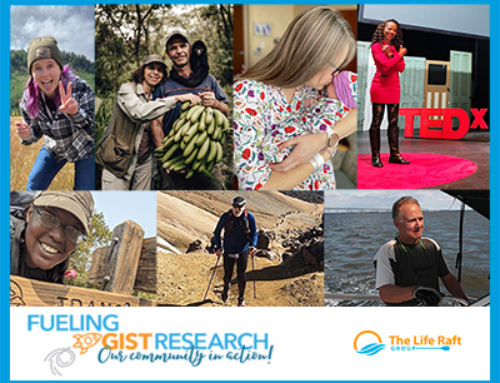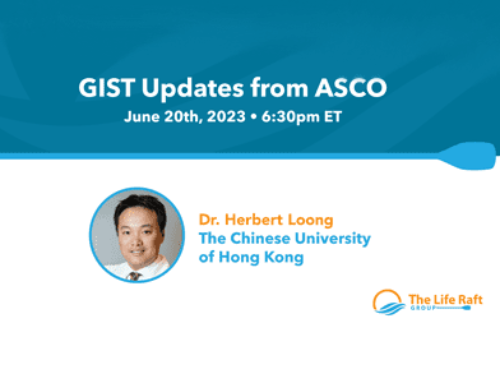Working Group Provides Industry-Wide Recommendations for Testing Terminology in Precision Medicine
 The Life Raft Group has been an integral part of a Pan-Cancer Working Group designed to determine consistent terminology around biomarker or mutational testing. The goal is to communicate to patients and the larger community in plain, patient friendly and consistent language what these terms mean, and how they impact on precision medicine.
The Life Raft Group has been an integral part of a Pan-Cancer Working Group designed to determine consistent terminology around biomarker or mutational testing. The goal is to communicate to patients and the larger community in plain, patient friendly and consistent language what these terms mean, and how they impact on precision medicine.
Led by LUNGevity Foundation, this consortium of 41 leading patient advocacy organizations, professional societies and industry partners has published a white paper detailing recommendations for the use of testing terminology in precision medicine for patient education throughout the cancer community. Use of consistent language will significantly improve patient awareness and understanding of potentially life-saving testing options available for both new cancer diagnoses and progression or recurrence of disease. In March 2019, Denisse Montoya, Director of the GIST Patient Registry, attended a pan-tumor round-table meeting along with a group of 20 patient advocacy groups, three professional societies and 18 pharmaceutical and diagnostic companies. Following this meeting, working groups participated in follow-up meetings where different goals for consistent terminology were established by each group. Additionally, a survey and framework analysis were conducted across different cancer groups.
Read more about Common Cancer Testing Terminology
According to VP of Program Services, Sara Rothschild, “As we enter the era of precision oncology and we have seen more treatments approved for GIST that target specific biomarkers or gene fusions, it is imperative that both the patient and medical community know about the importance of this testing and how to get it done.”
An abstract on the Working Group’s recommendations was published in May 2020 as part of the American Society of Clinical Oncology (ASCO) Annual Meeting Virtual Library.
The Life Raft Group continues to bring the voice of the GIST community to collaborative efforts such as this, resulting in changes that can potentially benefit all cancer patients.



